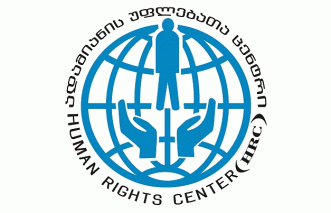Human Rights Center (HRC) observed the trial of a musician and DJ Mikheil Todua (Mikhailo) at the Tbilisi City Court.
Mikheil Todua got under the threat to be returned to prison after he played at an event of political party Girchi on October 17 at 22:00 as the Tbilisi Probation Bureau considered this to be a violation of the conditions of house arrest.
On November 11, the Tbilisi City Court heard a motion filed by the Tbilisi Probation Bureau to lift the house arrest and impose imprisonment on Mikheil Todua.
Seven years ago, on December 25, 2013, under the judgment of the Tbilisi City Court, Mikheil Todua was sentenced to 9 years of imprisonment. He was accused of committing a drug crime, namely purchase, storage and consumption of club drugs. On October 11, 2019, the convict was commuted to house arrest for 2 years and 11 months. He was instructed to be at the place of residence from 21:00 to 08:00.
As the representative of the Probation Bureau noted at the hearing in the Tbilisi City Court, Mikheil Todua left his place of residence after 21:00 on October 13, 2020 and returned on October 14 after 08:00 in the morning. Similarly, on October 17, 2020, after 9:00 p.m., he left his place of residence and returned on the morning of October 18, after 08:00.
Similar cases were considered excusable to Mikheil Todua at other times. Due to recent facts, the Probation Bureau filed a motion with the Tbilisi City Court on October 26, 2020, requesting the abolition of the house arrest used against Mikheil Todua and the use of imprisonment.
According to HRC, the submission filed with the City Court by the probation office raises a reasonable suspicion for the objective observer about the existence of alleged political motives, because after the imprisonment of the convict was replaced by house arrest, each working day (depending on the profession, to obtain a permit for night shifts) he was contacting a probation officer and provided information about the place of work and time. This action of Mikheil Todua was always considered excusable until he performed his professional work at the pre-election event of the party Girchi on October 13, 14 and 17. The representative of the Probation Bureau was also informed about this fact and explained to the convict that leaving the house would not be considered a violation if the relevant document was submitted. Eventually, however, the probation office did not consider excusable the last two cases to the convict.
Following the judgment rendered by the judge, the submission from the Probation Bureau regarding the use of imprisonment as a punishment was rejected. According to the interpretation by the judge, he did not use imprisonment against Mikheil Todua, because Todua acted in good faith both when in prison and after the release. However, the judge granted the alternative request of the Probation Bureau, according to which Mikheil Todua was obliged to stay at home from 19:00 to 08:00, instead of 21: 00 to 08: 00.
According to HRC, the judgment by the judge is fair and well-founded in the part of rejecting the submission filed by the probation office to the Tbilisi City Court because of the personality and good behavior of Mikheil Todua.
HRC monitored the trial of Mikheil Todua within a public events monitoring project. Beside the above proceedings, HRC monitoring also concerns 21 criminal and administrative cases with allegedly political motives.
The project Public Events Monitoring is supported by a US foundation National Endowment for Democracy (NED)
News
December 13, 2023
Ethnic minorities outside the peace dialogue
November 6, 2023
‘Peace’ agenda of political parties
Popular
Articles
February 13, 2024




